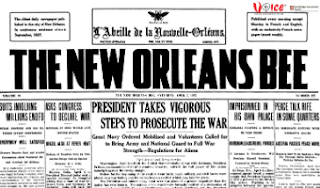C1 Advanced
C1 Advanced, previously known as Cambridge English: Advanced and the Certificate in Advanced English (CAE), is an English language examination provided by Cambridge Assessment English C1 Advanced is proof of high-level achievement in English and is designed for learners preparing for university or professional life. It is focused on Level C1 of the Common European Framework of Reference for Languages (CEFR).
C1 Advanced is one of the examinations in Cambridge English Qualifications – a path for improving language skills. Each Cambridge English Qualification targets a particular level of the CEFR, and they work together to create an effective learning journey.
C1 Advanced is made up of four exam papers, which cover all the key language skills (Reading and Use of Language, Writing, Listening and Speaking).
The Speaking paper is taken face-to-face. Candidates have the choice of taking the Reading and Use of English paper, Writing paper and listening paper on either a computer or on paper
1. Reading and Use of English (1 hour 30 minutes) The Reading and Use of English paper has eight parts and 56 questions. The paper contains texts totaling approximately 3,000 to 3,500 words and candidates are expected to be able to understand texts taken from a range of sources such as short stories, novels, magazines, newspapers and internet articles.
Parts 1 to 3 involve completing gaps in a text (i.e. choosing/forming the correct word for each gap). These questions test knowledge of vocabulary and grammar.
Each question in Part 4 has a sentence and a ‘key’ word, which must be used to complete a second sentence so that it has the same meaning as the first sentence. These key word transformations test grammar, vocabulary and collocation.
2. Writing (1 hour 30 minutes)
The Writing paper has two parts. Candidates are assessed using the following criteria: Content, Communicative Achievement, Organization, and Language.
The first part is compulsory and involves writing an essay in response to an input text. The input texts might include articles, leaflets, notices and formal or informal letters.
In the second part, candidates must choose one of three writing tasks. These might include writing a letter, proposal, report or review.
3. Listening (approximately 40 minutes)
The Listening paper has 30 questions, which include listening to short extracts, a long monologue, an interview or discussion, and short monologues on a particular theme.
Candidates are expected to demonstrate a wide range of listening skills needed for real-life purposes, such as understanding the gist of an extract, understanding specific information or the speakers’ opinion, attitude or feeling. Recordings take the form of lectures, talks, interviews, speeches and radio broadcasts.
4. Speaking (15 minutes)
The Speaking test is taken face-to-face (including in the computer-based version of the exam) and the standard format is two candidates and two examiners. One examiner acts as interlocutor and assessor, interacting with the candidates and managing the test. Candidates are expected to demonstrate a range of speaking skills such as pronunciation, intonation, initiation and maintaining of a discussion, ability to organize thoughts and use of appropriate grammar and vocabulary.
The Speaking paper is conducted in four parts.
The first part involves a brief exchange between each candidate and the interlocutor.
The second part involves each candidate talking in turn, on their own, about a set of pictures.
In the third part the candidates are given some pictures and a task; they are expected to discuss the task, exchange ideas and reach a decision through negotiation.
In the fourth part of the test the candidates and the interlocutor discuss topics related to the task in Part 3. The interlocutor directs the interaction by asking questions which encourage the candidates to discuss issues in more depth than in earlier parts of the test.
Scoring
In January 2015, Cambridge English Scale scores replaced the candidate profile and standardized scores used for pre-2015 results. All candidates (pre- and post-2015) receive a Statement of Results, with those scoring high enough also receiving a certificate.


Comments
Post a Comment